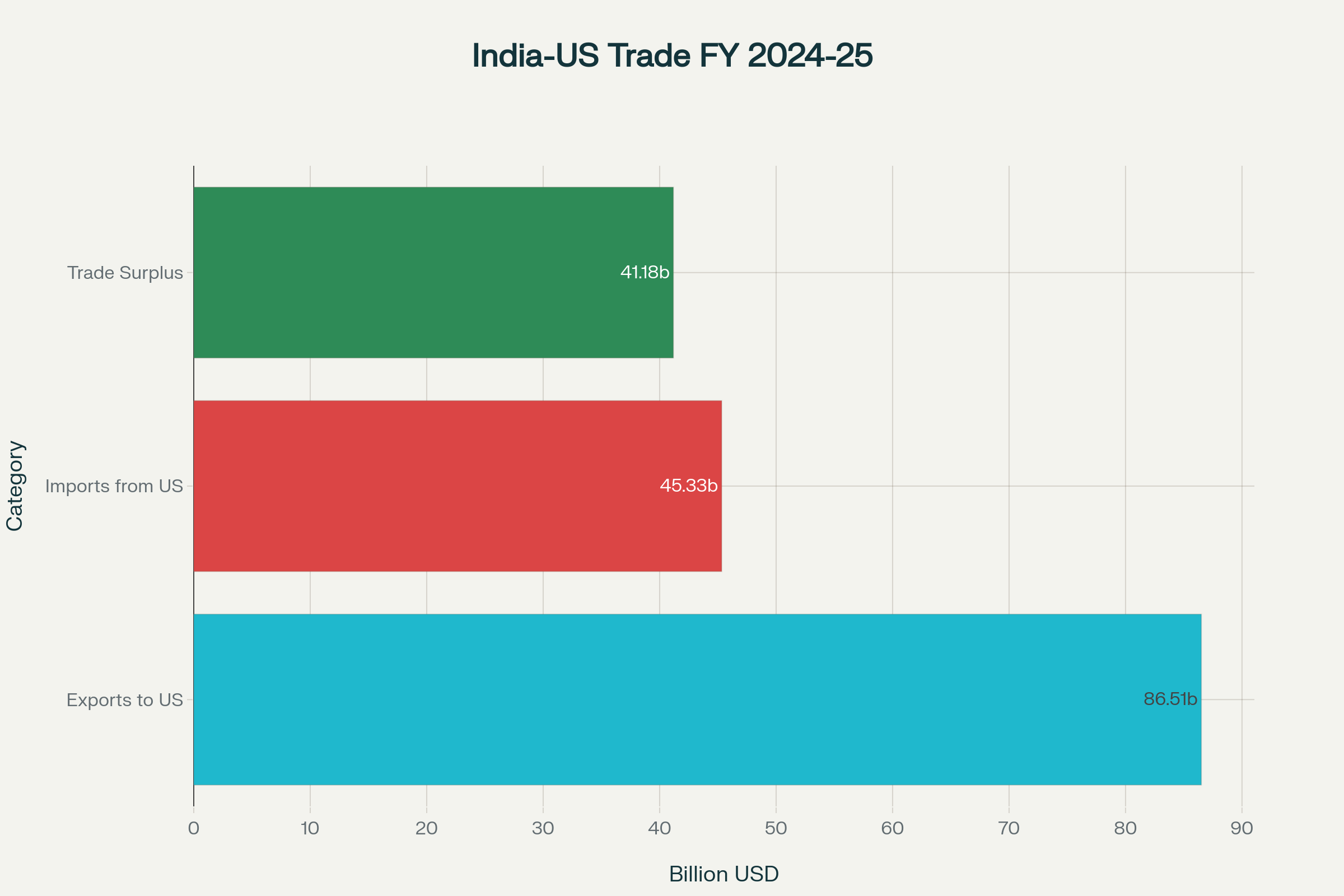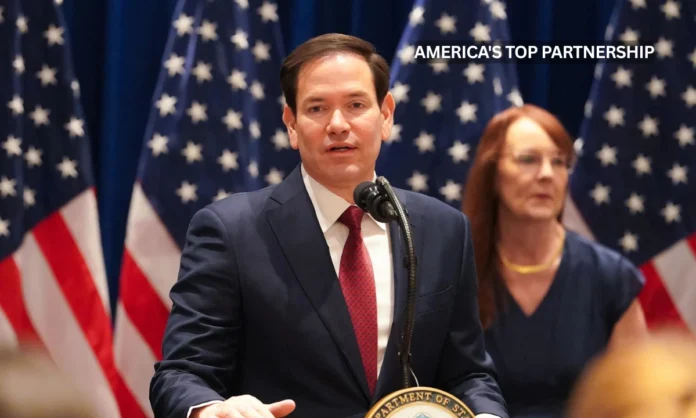US Secretary of State Marco Rubio has emphasized that India-US relations represent one of America’s most crucial global partnerships, describing the relationship as being in an “extraordinary transition” period. His remarks came during Senate confirmation hearings for Sergio Gor, President Trump’s nominee for US Ambassador to India, highlighting the strategic importance of India-US relations in shaping Indo-Pacific dynamics.
Key Highlights:
- Strategic Partnership: Rubio declared India-US relations as “one of the top relationships the US has in the world today” during Senate Foreign Relations Committee proceedings
- Trade Resumption: India-US relations are set for renewed trade negotiations next week following recent tariff tensions over Russian oil imports
- Defense Cooperation: India-US relations encompass expanding military partnerships, with defense trade growing from near zero in 2008 to over $20 billion by 2020
Opening Overview: Indo-Pacific Strategic Realignment
The Secretary of State’s emphatic endorsement of India-US relations signals a significant diplomatic recalibration amid ongoing global challenges. Rubio’s characterization of India-US relations as central to America’s 21st-century strategic vision reflects the administration’s recognition of New Delhi’s pivotal role in shaping regional dynamics. This assessment of India-US relations comes as both nations navigate complex geopolitical tensions, particularly regarding India’s continued energy relationship with Russia.
The timing of Rubio‘s statements about India-US relations, delivered during Sergio Gor’s confirmation hearing, underscores the administration’s commitment to strengthening diplomatic ties through experienced personnel. Gor, at 38, is positioned to become the youngest American ambassador to India, bringing direct access to President Trump’s inner circle to manage India-US relations. The Secretary emphasized that having a representative with “direct ear and confidence of the President” remains critically important for managing this strategic partnership.
Current bilateral trade dynamics reveal the economic significance of India-US relations, with total trade reaching $131.84 billion in FY 2024-25, making the US India’s largest trading partner. This represents substantial growth from previous years, with India maintaining a $41.18 billion trade surplus in India-US relations. The strategic importance of India-US relations extends beyond commerce into defense cooperation, technology transfer, and regional security arrangements.
Strategic Indo-Pacific Positioning
- Regional Command Structure: The US has renamed its combatant command to emphasize Indo-Pacific priorities, with India-US relations positioned as the central component
- 21st Century Focus: Rubio stressed that the “story of the 21st century will be written in the Indo-Pacific,” highlighting the geographical and strategic significance of India-US relations
Rubio’s emphasis on the centrality of India-US relations to Indo-Pacific strategy reflects broader American efforts to counter China’s regional influence while strengthening democratic partnerships. The Secretary’s acknowledgment that India sits “at the core” of US Indo-Pacific strategy indicates a fundamental shift in how Washington views India-US relations in global affairs. This positioning aligns with India’s own strategic interests in maintaining regional stability while preserving its traditional non-aligned foreign policy principles within India-US relations.
The strategic partnership of India-US relations encompasses multiple dimensions beyond traditional diplomatic relations. Defense cooperation has expanded significantly under the Modi administration, with foundational agreements including LEMOA, COMCASA, and BECA facilitating technology transfer and interoperability in India-US relations. The US granted India Strategic Trade Authorization (STA-1) status in 2018, providing access to high-technology products previously restricted to NATO allies, further strengthening India-US relations.
India’s demographic advantages, including its 1.4 billion population and rapidly expanding middle class, present substantial economic opportunities for American businesses across sectors from artificial intelligence to pharmaceuticals within the framework of India-US relations. The convergence of strategic interests, particularly regarding China’s regional expansion, has created unprecedented cooperation opportunities between the two democracies in India US relations.

India-US Bilateral Trade Statistics for FY 2024-25
Trade Relations and Economic Integration
- Bilateral Trade Growth: Total trade in India US relations reached $131.84 billion in FY 2024-25, representing 10.13% growth from the previous year
- Export Performance: Indian exports to America grew 11.6% to $86.51 billion, while imports from the US increased 7.44% to $45.33 billion, strengthening India US relations
The robust trade relationship demonstrates deepening economic integration despite recent tensions over tariffs and energy policies affecting India-US relations. India’s key exports to America include pharmaceutical formulations worth $8.1 billion, telecommunications equipment valued at $6.5 billion, and precious stones totaling $5.3 billion, forming the backbone of India-US relations. The substantial trade surplus of $41.18 billion reflects India’s competitive advantages in manufacturing and services sectors within India-US relations.
Recent developments suggest both nations recognize the need to address trade imbalances through dialogue rather than punitive measures in India US relations. Commerce Minister Piyush Goyal expressed optimism about reaching initial trade agreement components by November 2025, indicating momentum in India-US relations negotiations. The administration’s invitation for Indian Commerce Ministry officials to visit Washington next week signals renewed commitment to resolving outstanding issues in India-US relations.
Energy trade remains a contentious issue in India-US relations, with the US imposing 25% additional tariffs on Indian exports over Russian oil purchases. However, both sides appear willing to compartmentalize this dispute while advancing cooperation in other areas of India-US relations. India’s continued Russian energy imports, totaling approximately $3.1 billion in August 2025, reflect economic pragmatism rather than political alignment within the broader context of India US relations.
Defense Partnership Expansion
- Technology Transfer: India-US relations in defense have evolved into a pillar of global security cooperation, with emphasis on co-development and co-production initiatives
- Military Exercises: Expanded joint training programs and interoperability agreements have strengthened operational coordination between both militaries in India-US relations
Defense cooperation represents one of the most successful aspects of India US relations, transforming from minimal engagement to comprehensive partnership within two decades. India US relations now encompass joint military exercises, defense industrial cooperation, and regular high-level consultations through the 2+2 Ministerial Dialogue mechanism. This cooperation has facilitated India’s access to advanced American military technologies while enhancing regional deterrence capabilities through India US relations.
The defense partnership in India-US relations extends beyond traditional arms sales to include emerging domains such as space and artificial intelligence. Maritime security cooperation has intensified, reflecting shared interests in maintaining open sea lanes critical for global commerce within India US relations. The US Navy’s role in securing international waters remains vital for India’s energy security, particularly given its substantial oil import requirements, strengthening strategic India US relations.
India’s defense spending of approximately 1.9% of GDP, compared to America’s 3.5%, indicates potential for expanded cooperation as New Delhi modernizes its military capabilities through India-US relations. The strategic convergence on China-related security challenges provides additional impetus for deeper defense integration in India-US relations, though India maintains its commitment to strategic autonomy in foreign policy.
Navigating Ukraine Conflict Implications
- Energy Policy Tensions: The Ukraine conflict has complicated India-US relations due to India’s continued Russian oil imports, leading to US tariff impositions
- Diplomatic Balance: Both nations seek to manage disagreements over energy policy while advancing cooperation in other strategic areas of India-US relations
The Ukraine conflict has introduced new complexities into India US relations, particularly regarding energy trade and sanctions policy. India’s Russian oil imports have increased from less than 1% before the conflict to approximately 37% of total imports by 2024, driven primarily by economic considerations affecting India US relations. This shift has prompted American criticism and retaliatory tariffs, though India remains committed to its energy security priorities within the framework of India US relations.
Rubio’s acknowledgment of “really important issues” requiring bilateral cooperation suggests recognition that Ukraine-related tensions need not derail broader strategic partnership goals in India US relations. The Secretary’s emphasis on working through these challenges indicates administrative willingness to compartmentalize disagreements while advancing shared interests in India US relations. This approach reflects mature diplomatic relationship management between two democracies with occasionally divergent interests in India US relations.
Recent diplomatic exchanges between President Trump and Prime Minister Modi suggest both leaders recognize the importance of maintaining dialogue despite policy differences affecting India US relations. Trump’s social media posts emphasizing friendship with Modi, coupled with renewed trade negotiations, indicate efforts to prevent energy policy disputes from undermining broader partnership objectives in India US relations. The administration’s pragmatic approach acknowledges India’s sovereign right to energy diversification while encouraging alignment with Western policy goals through India US relations.
Closing Assessment: Partnership in Transition
Secretary Rubio’s characterization of India US relations as among America’s most important global relationships reflects a fundamental strategic realignment recognizing New Delhi’s rising influence and democratic values. The “extraordinary transition” he described encompasses expanding cooperation across defense, technology, and economic sectors while managing policy differences through sustained dialogue in India US relations. This approach demonstrates both nations’ commitment to partnership despite occasional disagreements on specific issues within India US relations.
The appointment of Sergio Gor, with his direct access to President Trump, signals administrative recognition that effective India US relations require high-level attention and coordination. As global power dynamics continue evolving, particularly in the Indo-Pacific region, India US relations appear positioned for continued growth and deeper integration. The relationship’s resilience through various challenges suggests strong foundational elements supporting long-term cooperation between the world’s oldest and largest democracies through India US relations.


